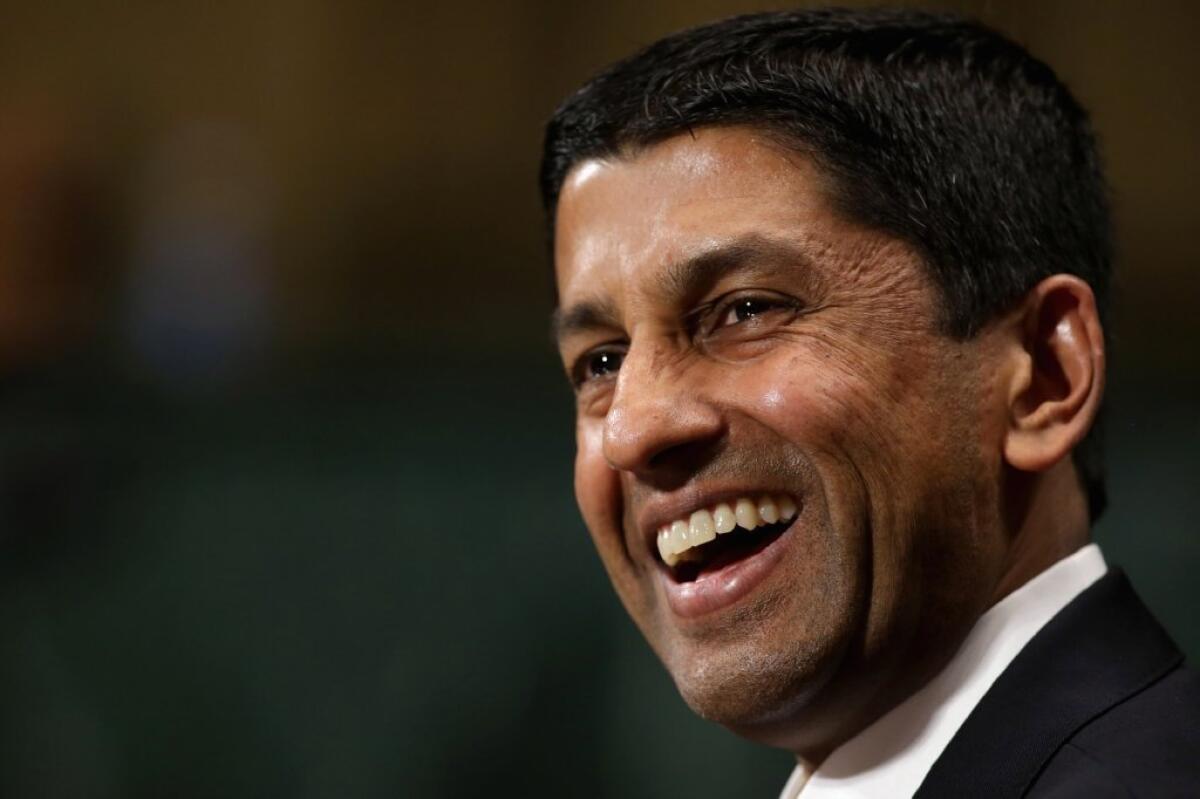An end to partisan gamesmanship on judges? Not yet

After Republicans successfully filibustered two of President Obama’s high-profile nominees to federal appeals courts, the president has launched the proverbial no-holds-barred effort to win confirmation of Deputy Solicitor General Sri Srinivasan for a seat on the U.S. Court of Appeals for the District of Columbia Circuit. And a story by Times Supreme Court reporter David Savage suggests that this time the president may succeed -- as he should.
But Srinivasan’s apparently easy path to confirmation doesn’t guarantee an end to the bipartisan practice of blocking eminently well-qualified judicial nominees -- especially to the D.C. Circuit, a sort of farm team for the Supreme Court -- out of partisan spite or as part of a long game to take out potential Supreme Court appointees of the other party.
As Savage pointed out, Srinivasan was a law clerk for two Republican-appointed judges, and he worked in the George W. Bush Justice Department for five years before joining the Obama team as deputy U.S. solicitor general. At Srinavasan’s confirmation hearing, Sen. Ted Cruz, the GOP’s Great Right Hope and (like Srinavasan) a former Supreme Court law clerk, quipped: “I am hopeful that our friendship will not be seen as a strike against you.”
Fortunately for him, Srinivsan also is not considered as ideologically liberal as Goodwin Liu, the former UC Berkeley law professor whose nomination to the U.S. 9th U.S. Circuit Court was filibustered by Republicans. (Liu now serves on the California Supreme Court.)
So all’s well that ends well? Only if you think it’s appropriate for Republicans in the Senate to resist an attempt by a Democratic president to put too liberal a judge on a trajectory that might lead to the Supreme Court. But Liu deserved to be confirmed, and so did Caitlin Halligan, who withdrew as a nominee to the D.C. Circuit almost 2 1/2 years after Obama nominated her. Her sin? As a lawyer for the state of New York, she once filed suit against gun manufacturers.
Halligan and Liu deserved to be approved not because they would have moved their respective courts leftward but because 1) they were well qualified, 2) they inhabited a broad philosophical mainstream and 3) they were being nominated for inferior courts that are bound by the Supreme Court’s interpretation of the Constitution and laws. If Republicans didn’t want to see Goodwin Liu on the Supreme Court, whose decisions are unreviewable, fair enough, but that shouldn’t have influenced their position on his appeals court nomination.
Likewise, Democrats behaved badly when they filibustered George W. Bush’s nomination of Miguel Estrada to the D.C. Circuit lest Estrada, a Honduran immigrant and a veteran of the solicitor general’s office, be put on track to become the first Latino Supreme Court justice. (That distinction went to a Democratic nominee, Sonia Sotomayor.) Again, if Estrada had eventually been nominated to the Supreme Court, where confirmation criteria are more complicated, the Democrats could have opposed him then.
It’s reassuring that Srinivasan seems on track to be confirmed, but the system is still not operating the way it should. Presidents of both parties should be given considerable deference when they propose professionally well-qualified candidates for the federal courts, even if those appointees reflect the president’s philosophy. (Over time, changes in the presidency will effect an ideological balance.) And senators should consider whether a nominee is qualified for the court to which he or she is appointed, not one to which he or she might ascend in the future.
Following those rules would simplify life for senators, presidents and nominees -- and so, of course, would ending the filibuster. But neither party seems willing to do the sensible thing.
ALSO:
A to-do list for L.A.’s next mayor
Poll: James Holmes and the death penalty
Rolling back the tax breaks for supersized nest eggs
More to Read
A cure for the common opinion
Get thought-provoking perspectives with our weekly newsletter.
You may occasionally receive promotional content from the Los Angeles Times.











